FOX brings mammogram truck to FOX Square in honor of Breast Cancer Awareness Month
FOX Business anchor Gerri Willis joined the 'Fox & Friends' crew on FOX Square to discuss the importance of preventative measures
A woman who is fighting breast cancer years after she was misdiagnosed is sharing a critical message about female health.
"On paperwork I’m classified as terminal, but I’m not going to let this take me anytime soon," Philecia La’Bounty of Huntington Beach, California, told Fox News Digital.
"I’m also shouting from the rooftops to raise awareness to make cancer a chronic illness rather than a death sentence because women deserve more."
BREAST CANCER AND MAMMOGRAMS: 3 KEY QUESTIONS WOMEN OF ALL AGES SHOULD ASK BEFORE THEIR SCANS
La’Bounty, who works as a sales representative, said she was 29 years old when she first discovered a forward-facing, marble-sized lump in her left breast.
"My boyfriend, Brent [and I] — we were at home and I said, ‘Hey, can you feel this?’" she said.
At the time, La’Bounty was working part-time in hospital administration and didn’t have health insurance, but she was able to get a physical exam and an ultrasound through an alternative health care program, she said.
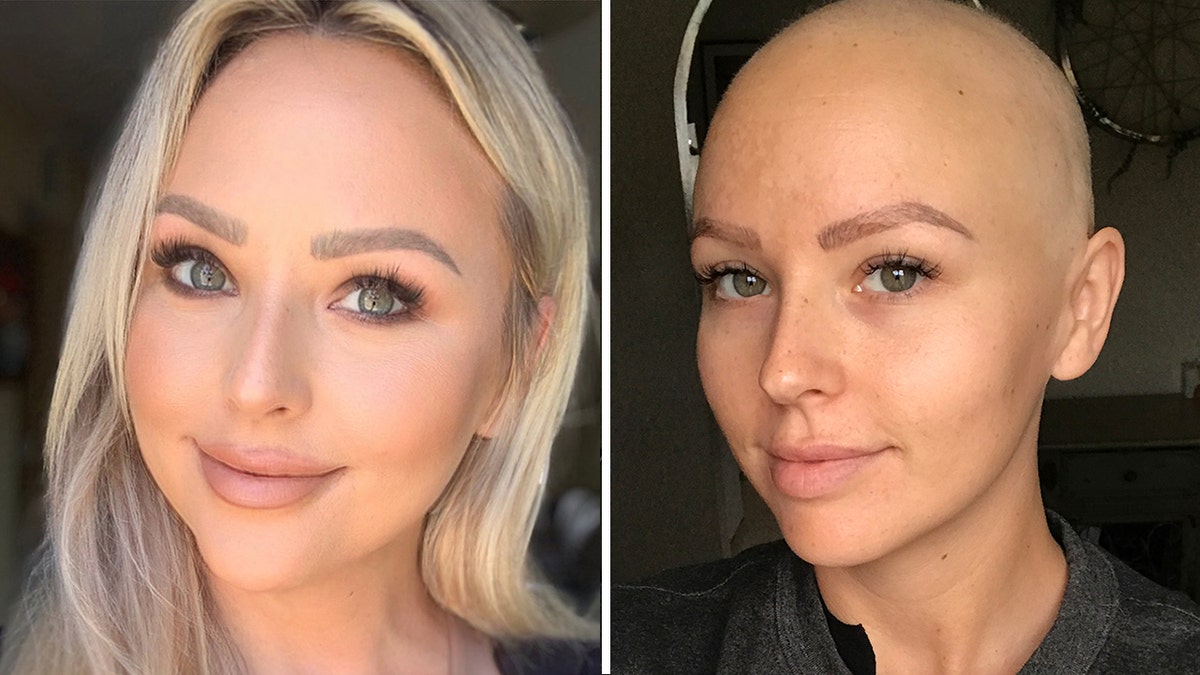
Philecia La'Bounty, 35, is seen in a side-by-side image before and after she underwent chemotherapy for her breast cancer. (Philecia La'Bounty)
"Within two weeks, we got the results. They said it was a ‘benign, gunky cyst — nothing to worry about,’" La’Bounty recalled.
Now 35, La'Bounty said doctors also informed her that her blood work and BMI appeared healthy.
Though breast cancer is not present in her family history, La’Bounty requested a mammogram.
"Patient is denied due to age and no family history," La’Bounty said she learned from the free medical program in which she was enrolled.
She didn’t feel sick but returned to her clinic — where medical professionals told her to undergo immediate testing.
But "in four-to-eight months, [the lump] grew eight centimeters," she said.
La’Bounty said that during that time, she didn’t feel sick but returned to her clinic — where medical professionals advised her to undergo immediate testing.
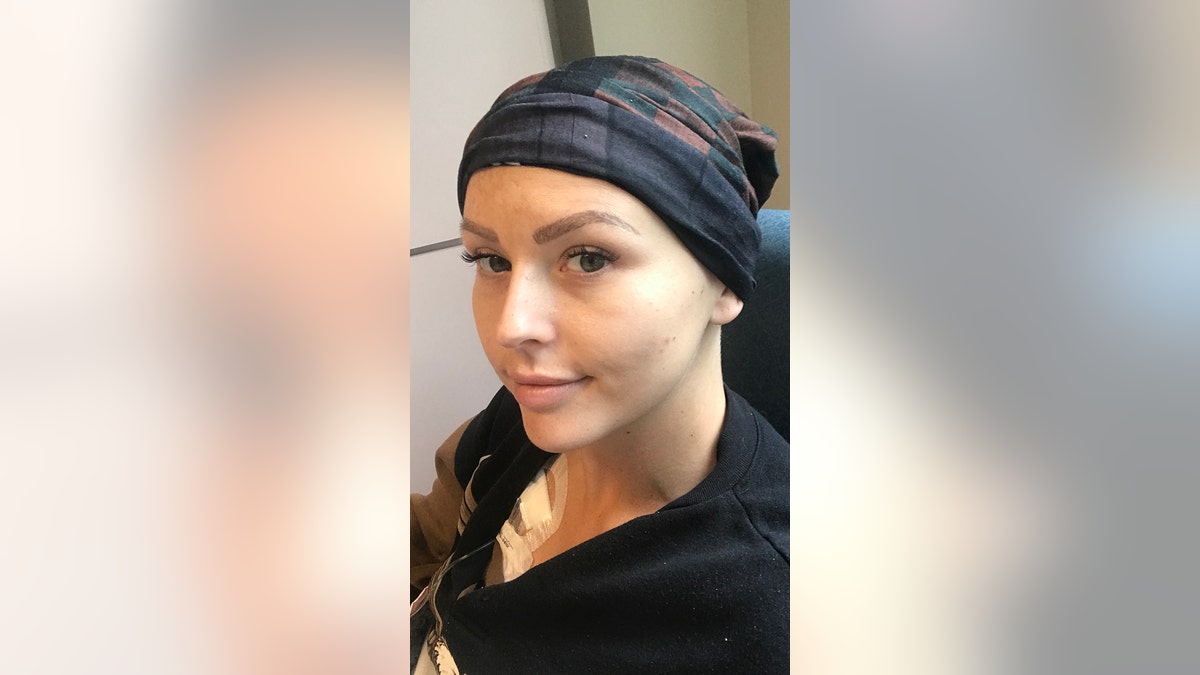
Philecia La'Bounty is shown wearing a headscarf. La'Bounty, 35, is aiming to raise awareness about breast cancer in women and the importance of getting routine health checks. (Philecia La'Bounty)
She was directed to a facility in Anaheim and had an emergency mammogram.
"They did an ultrasound [as well]," La’Bounty said, adding that medical staff spent about an hour discussing her results.
"I said, ‘This is bad,’" she recalled. "They tried their hardest, but you can just tell in their faces."
BREAST CANCER SURVIVOR'S INCLUSIVE LINGERIE BRAND CATERS TO DIAGNOSED WOMEN
La’Bounty was then informed she had breast cancer, she said, and that her results were being sent to a radiologist.
"I was like, ‘Oh my God. I did what I was [supposed] to do. I saw something, said something and you guys told me I was too young [for a mammogram]," she told Fox News Digital.
"I felt like every day I was there for another scan."
Within one week, La’Bounty underwent eight biopsies — four in her left breast, two in her right and two in her underarm. She also had another mammogram, an MRI and several more scans.
"I felt like every day I was there for another scan," La’Bounty said.
"I told my boyfriend, ‘I can’t breathe. I don’t know if it’s [because of] what’s going on, but I need to be seen" — meaning by a medical professional.
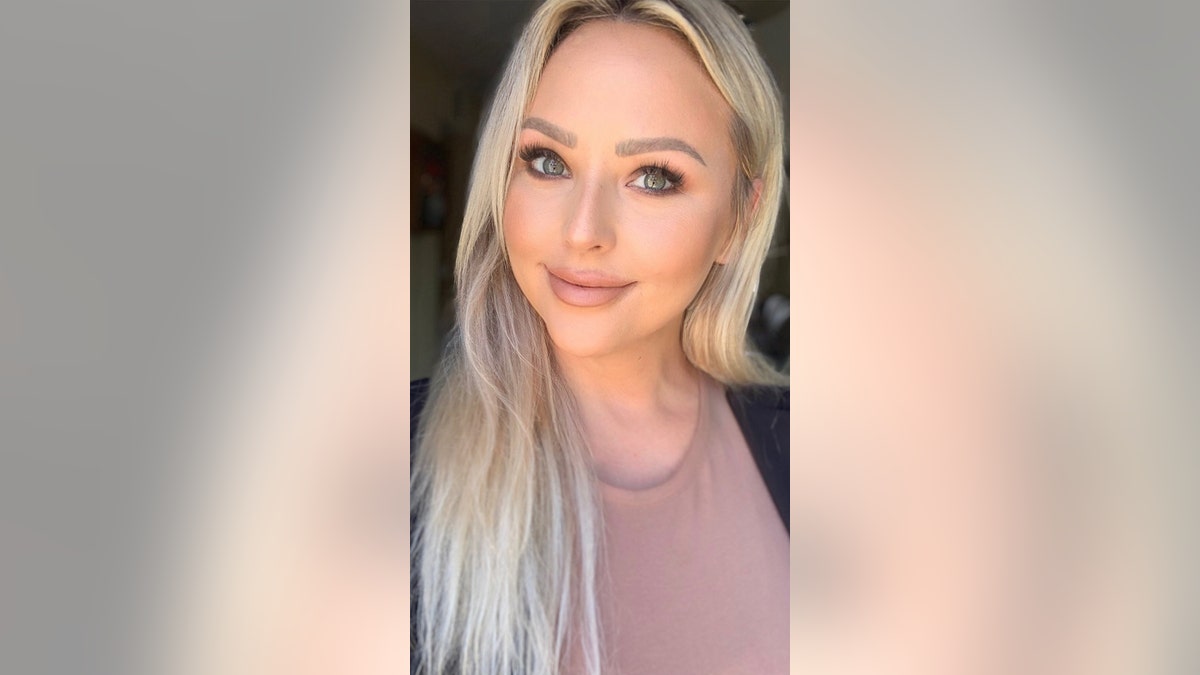
La'Bounty is photographed before she lost her hair to chemo. She wound up being diagnosed with metastasized breast cancer. (Philecia La'Bounty)
"We went into the ER. Finally, the doctor comes in and says, ‘You can’t breathe because of all the tumors in both of your lungs," La’Bounty said.
Physicians called her that night and told her she had cancer in both lungs, sternum and lymph nodes in her left armpit from the left breast, which metastasized.
"That’s how I found out I had stage 4 breast cancer," she said.
La’Bounty said she was grateful to have found a forward-facing lump in one of her breasts; however, she had "no idea" she also had a lime-sized, cancerous lymph node in her underarm.
"I was working a lot — hustling, modeling. I had no symptoms. I didn’t have a cough."
In total, she has undergone six rounds of different types of chemotherapy — including "the red devil." That's a nickname for doxorubicin, an intravenous medicine that’s typically used after surgery to remove a tumor in women "whose cancer has spread to the lymph nodes under the arm," according to the National Cancer Institute — and "in patients with metastatic breast cancer."
This type of chemo made her very ill, said La'Bounty, to the point where she was unable to drink water or eat food.
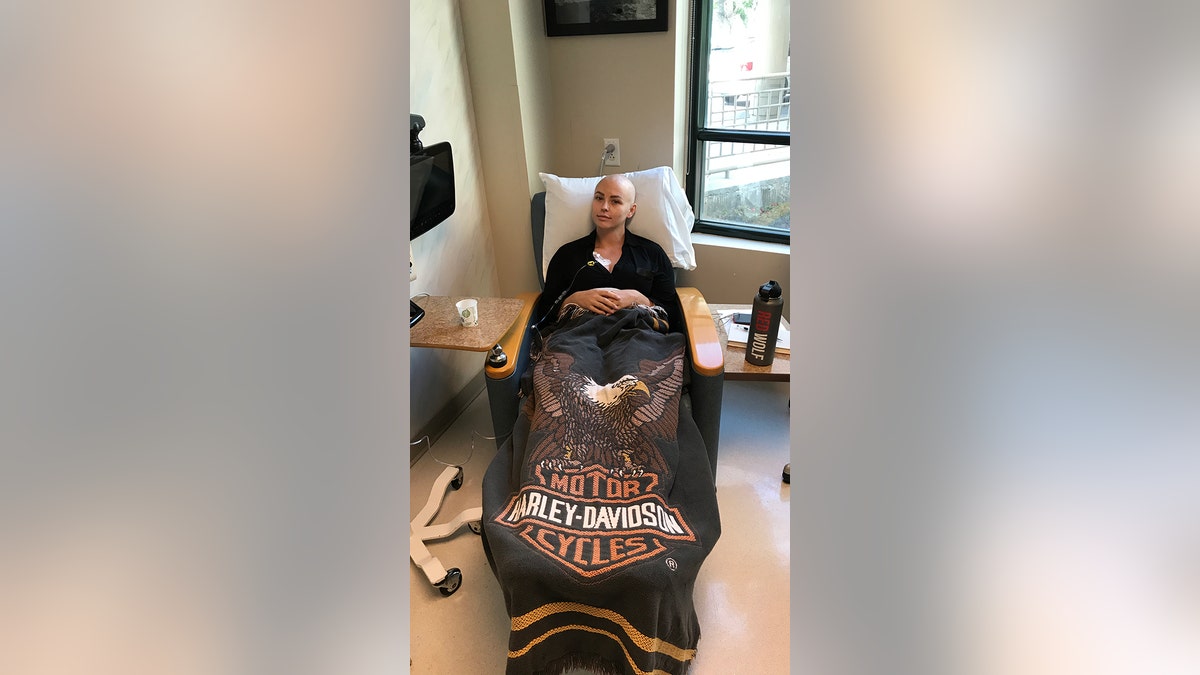
La'Bounty relaxes in a medical facility under a Harley-Davidson blanket. She earned her motorcycle license while she was in remission. (Philecia La'Bounty)
"That chemo is very, very hard in the heart," she said.
By the sixth treatment, La’Bounty was tumor free.
However, her ovaries and fallopian tubes were removed. La’Bounty said she does have a uterus and cervix, though the procedures put her in menopause at age 31.
"The first oncologist did not discuss fertility with me. Chemo makes you sterile," she said.
"How do you rip [out] every hope of having a family without it being discussed with me?" she added. "I went ahead with the ‘red devil’ because I didn’t want to die."
EXERCISE LOWERS THE RISK OF BREAST CANCER, STUDIES SHOW
La’Bounty said another oncologist informed her of her fertility options. She and her longtime boyfriend, Brent Maggard, 38, now have 10 frozen eggs.
"I said, ‘Yes,’" La’Bounty noted of her response to the fertility option. "I’m young, and I don’t plan to die."
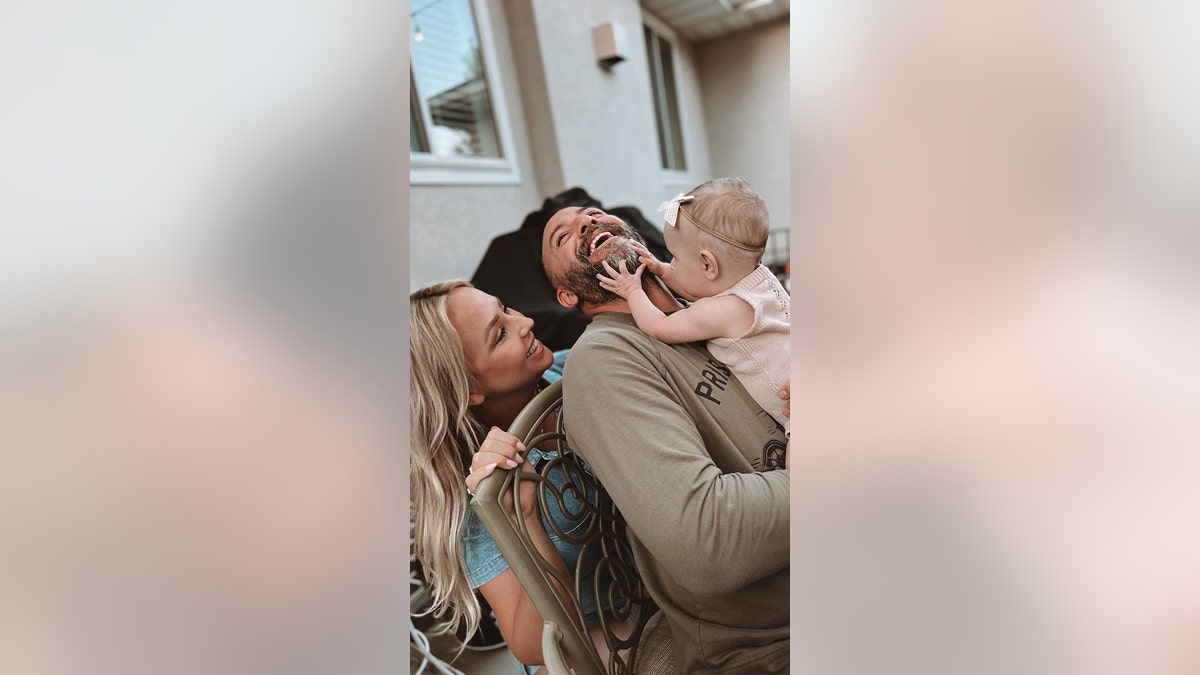
Philecia La'Bounty and her boyfriend of over a decade, Brent Maggard, are seen in a photograph with La'Bounty's baby niece. (Philecia La'Bounty)
"Now we are in talks [about] finding a surrogate," she added.
La’Bounty said that her hormone-driven cancer diagnosis makes it unsafe to carry a child.
She takes a daily pill to help stop the production of estrogen to keep the cancer dormant.
"Yes, I’ll be a mom someday, but I’ll never get to [fully] experience that because cancer took that away from me," she said.
Now, instead of "obsessing" over her diagnosis, La’Bounty said she’s focused on getting better and enjoying her family, which includes her three sisters, one brother and two nieces.
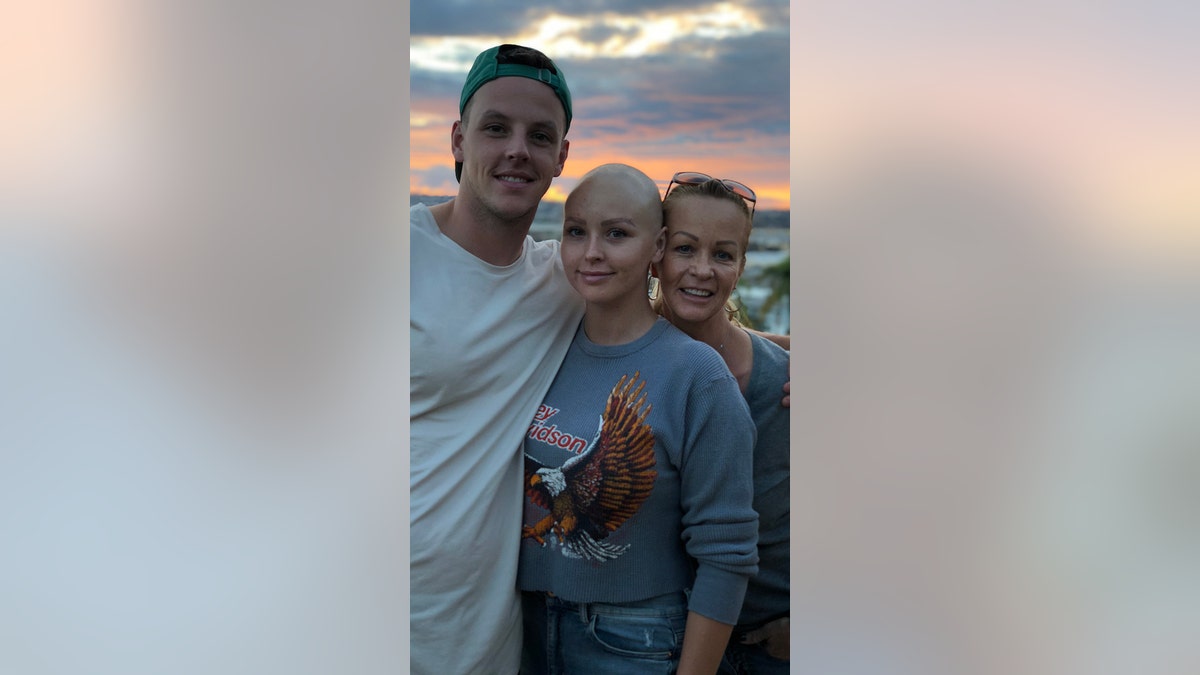
Philecia La'Bounty poses with her brother Dakota and her mother, Stevie. (Philecia La'Bounty)
La’Bounty is also leaning on her biggest support system, Maggard, whose mother has stage 1 cancer. His grandmother is also a stage 1 survivor, according to La’Bounty.
"He has really kept me active," La’Bounty said. "I wasn’t focused on the cancer. I was just focused on our next event."
In an email to Fox News Digital, Maggard explained his reaction on the day he learned La’Bounty was diagnosed with cancer.
"A lot of that morning was a blur, and seemed unreal," he wrote. "I did not know how to feel or react. It was hard to get an idea of what was racing through Philecia’s head that morning, she was staying calm … or … she was a lot more calm than I know I would have been."
"I could tell she was scared, in shock, and mad … but it’s like she was quickly going over her choices in her head. Choice A: Crumble, and lay in bed for the rest of her life, or Choice B: Fight like she has never fought before. And from that day on, she has been an absolute bad*** and the toughest, most courageous person I have ever met," Maggard added.
"I'm young, and I don't plan to die."
"That is not saying some days were not harder than others, but I know she has never once thought about giving up," he went on.
"She has too much to live for and too much to give to this world."
La’Bounty said she and Maggard enjoy taking their dog Canyon — a blue nose pit bull and silver lab mix — for walks, grabbing coffee and spending time on the beach.
The couple also likes to camp at a river in Arizona. Maggard's hobby is building vintage Harley-Davidsons — and now that La’Bounty has her motorcycle license, Maggard built her a chopper so they can ride together for coffee and dinner.
"I’ll be fighting forever," La’Bounty said. "We are just trying to figure out a new normal and how to make our dreams work with everything I have going on."
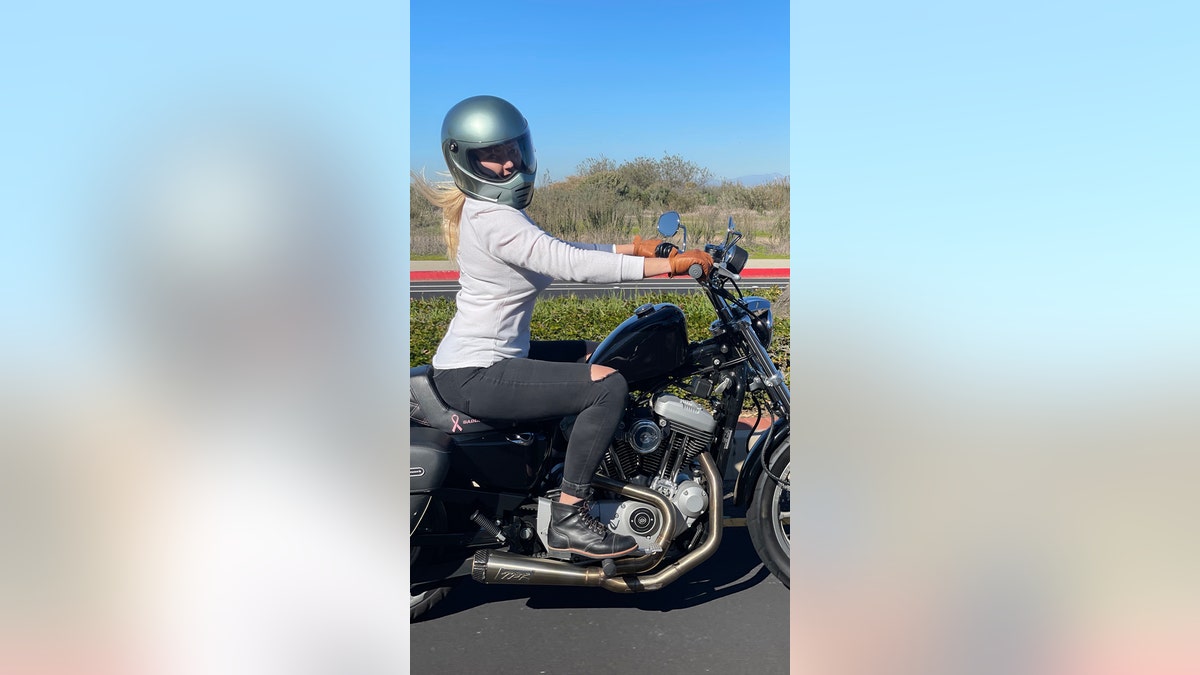
Philecia La'Bounty told Fox News Digital that her breast cancer was not diagnosed by doctors until after she found a lump in her left breast in 2018. (Philecia La'Bounty)
American women have a one in eight chance (12.9%) of developing breast cancer during their lifetimes, while American men have a one in 800 chance (0.13%), according to the National Institutes of Health’s National Cancer Institute.
Each year about 264,000 women are diagnosed with breast cancer, and approximately 42,000 women die of the disease, the Centers for Disease Control and Prevention (CDC) reports.
In addition, about 2,400 men are diagnosed with breast cancer each year and some 500 men die from it annually, CDC data shows.
Since breast cancer is more commonly found in women ages 40 and older, medical professionals and organizations recommend routine breast cancer screenings for middle-aged and senior women. This includes mammograms — the breast cancer screening method that's led to age-based debate among experts.
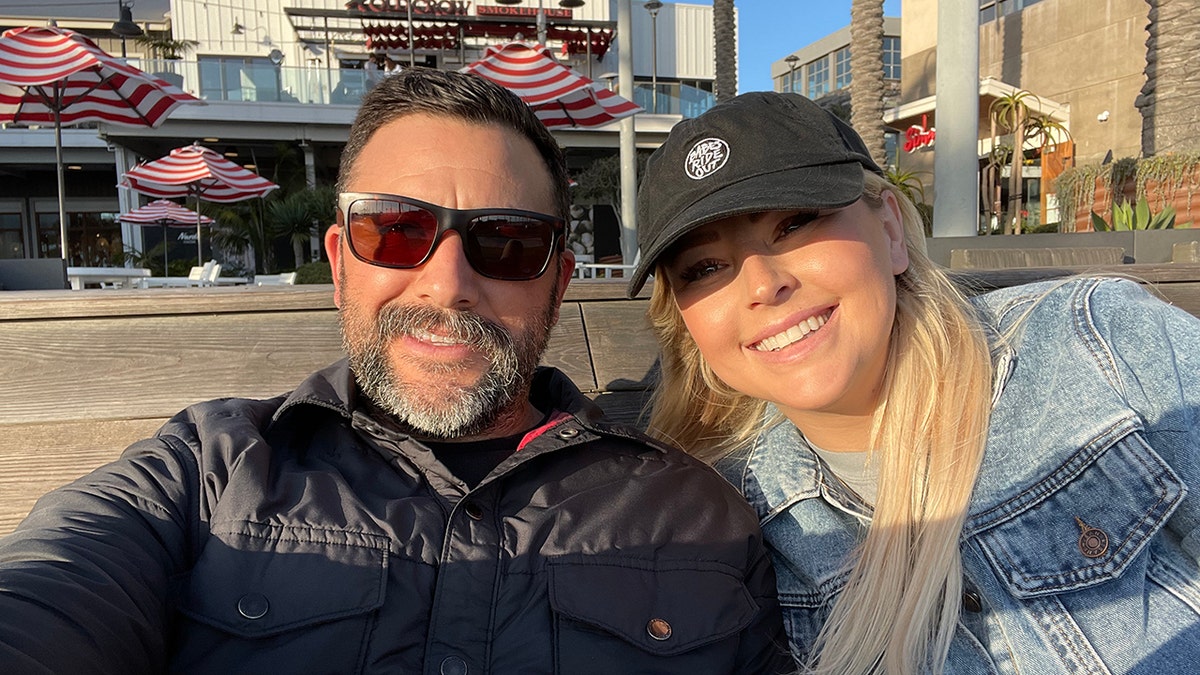
Philecia La'Bounty and Brent Maggard pose in California. Maggard told Fox News Digital, "This is what I remember from the day we found out Phil had cancer. A lot of that morning was a blur, and seemed unreal." (Philecia La'Bounty)
"We are going backward in what we need," La’Bounty said.
"I had not seen someone remotely close to my age going through this, until I was in this community."
She added that "99% of the women that I met were diagnosed or misdiagnosed like me in their 20s and early 30s. I met one woman who was 18 years old when she was diagnosed with breast cancer."
La'Bounty offered more tips for women who may be questioning their own health or diagnosis.
‘Fight harder, demand testing'
La'Bounty, a young woman who said she was misdiagnosed, noted that she felt that something was "not right."
"I never had a cyst in my entire life," she said, "Why is it happening now, and why am I being brushed aside? They convinced me that I was OK, [and] I had no other signs."
La'Bounty said she wants other women to "listen to their bodies."
"There are no boundaries when it comes to your health care," she added. "You should be feeling [your] breasts, armpits and neck on the same day, every single month … stomach, ovaries — do a full-body rubdown."
"Anything that feels abnormal, go be seen. You're too young…if it's not normal, it's not normal. "
‘You can fire your doctor’
"If you don't like the treatment you're getting or the way they're taking care of you, you have a right to fire your physician," La'Bounty said.
KATIE COURIC'S BREAST CANCER: WHAT OTHER WOMEN CAN LEARN FROM HER DIAGNOSIS
"You don't have to feel bad about not agreeing with your treatment plan … just because no insurance didn't qualify for quality of care."
"Don't give up until you're 100% positive that what is going into your body is OK, and you're OK."
La'Bounty recommends the Keep A Breast App, which offers a tool for a breast cancer self-check.
"One hundred percent of proceeds go to stage 4 research, which gets the least amount of funding," La'Bounty said of METAvivor, a platform on which she's shared her personal story.
Dr. Kathleen Kiernan Harnden, director of breast oncology at the Inova Schar Cancer Institute in Annandale, Virginia, who does not treat La'Bounty, told Fox News Digital in October that having "one first-degree relative with breast cancer doubles a woman’s risk."
Some other high-risk factors include a family history of breast cancer, a known genetic mutation or a previous breast biopsy, according to Harnden.
CLICK HERE TO GET THE FOX NEWS APP
Given this, Harnden said there are three questions all women should ask themselves before they request a mammogram consultation or appointment:
1. Do I have an increased risk of breast cancer?
2. How can I reduce my risk for breast cancer?
3. Will my mammogram be three-dimensional (3D) or two-dimensional (2D)?
For additional important information about breast cancer and mammograms, read more here.
Fox News Digital's Cortney Moore contributed to this report.

